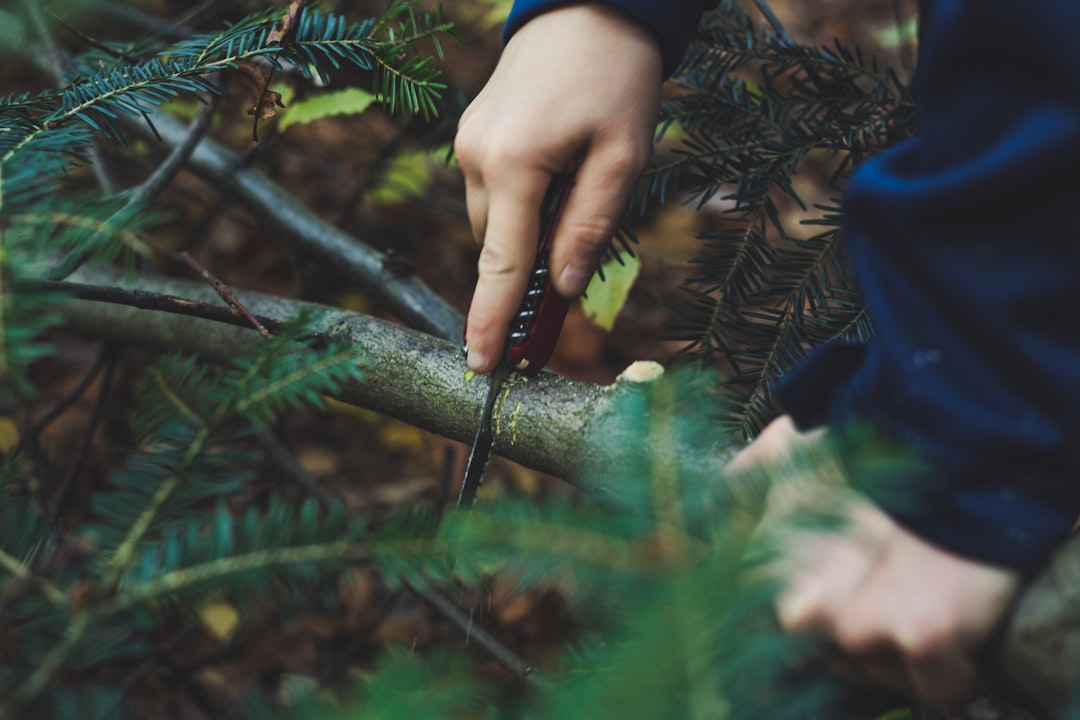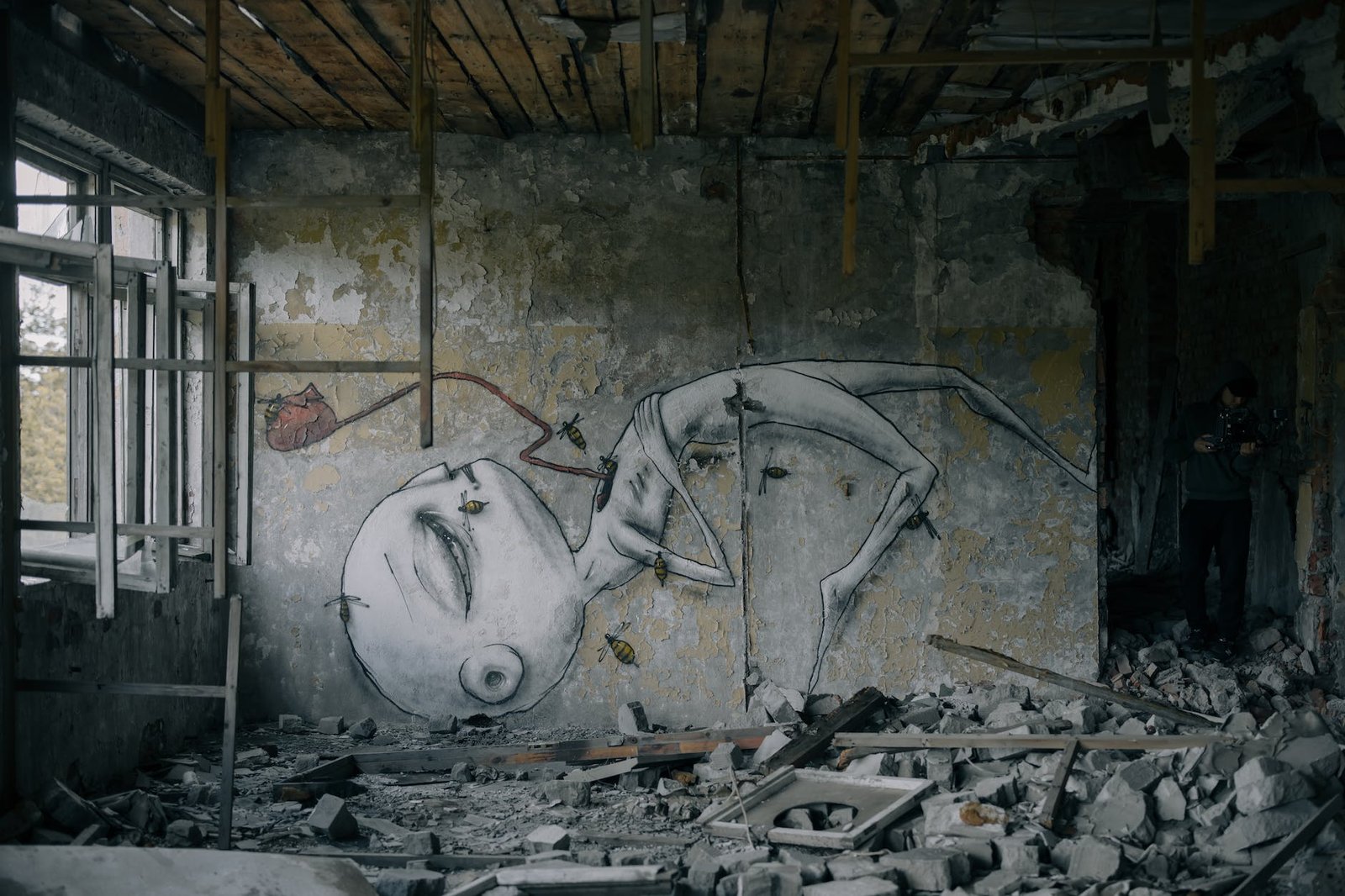An often neglected aspect of survival is mental health – the mindset that you carry in stressful situations. While having things like food, water, and shelter are all very important, you might not utilize them all effectively if you’re stressed out.
By being prepared and strategizing in advance, you can help yourself and others stay calm in the event of an emergency, and in doing so, prevent accidents or mistakes. The worst thing you can do in survival is panic, so prevent that first and foremost.
 Photo by cottonbro on Pexels.com
Photo by cottonbro on Pexels.com
Reduce Anxiety By Having Written, Detailed Plans
Many people have plans in their own heads for what to do in the event of various survival situations. However, in the heat of the moment, you won’t be as relaxed as you are when you’re planning things out.
It can be easy to forget an important part of your plan when you’re rushing to gather supplies and family members, which is part of why so many people opt for bug-out bags that they can just grab and run with.
However, not every survival situation dictates that you need to leave home, such as instances of extreme weather or viral outbreaks. In these cases, you need to have plans for what to do while you’re at home.
One important thing you should do with your plans is print them out and laminate them if possible, because storing them on your computer would be a huge risk to take. If you lost power, you couldn’t access your survival plans.
It’s also important to not be too general with your instructions. You might think you could never forget a simple aspect of a step of a plan, but if it’s not written out exactly as it should be, you could panic and forget it easily.
Having these easily accessible plans can take a load off of you when you’re already going to be in a stressful situation. You’ll want to be focused on what’s happening in the moment, and not having to think back to plans you made months or even years ago.

Mental Benefits of Having Essential Supplies Stocked Up
Obviously there are very tangible physical benefits to having all of your essential supplies stocked up in advance, but there’s also a mental health component to the relief that it brings.
You’ve likely seen footage on the news of stores when a survival situation of any kind starts to kick off. From snowstorms and hurricanes to people worrying about a sickness going around, people start to crowd supermarkets and strip the shelves clean.
Being in an environment like the store at the start of a survival situation can be very dangerous and stressful, and you’ll be very grateful that you were able to stock up ahead of time if you do it.
While many people aren’t able to easily stock up on that much food and supplies at one time, you can slowly build it up over time while people are relaxed, and over the course of a few months have yourself a substantial supply.
You won’t need to be one of the people worrying about being able to get things like PPE, first aid kits, or long lasting food if you already bought it all months in advance. Having one less thing to worry about is always advantageous.
Inspire Confidence in Yourself By Practicing Certain Skills
Something that you might notice about some survival preppers is that they always seem to talk about what all skills they ought to use in the event of a survival situation, but don’t really seem to practice them or learn them very well.
While experienced individuals make it look easy, something as simple as a fire starter stick can be difficult to use. If you pick one up for the first time in a survival situation, you’re probably going to be a bit lost on how to use it well.
Practice it somewhere safe, but get consistent with being able to produce good sparks with a fire starter. If you have a fire pit or something similar, practice safely starting a camp fire complete with tinder, starting sticks, and larger logs.
Even really simple things might take some practice. Things like filtration straws seem self-explanatory, but if you don’t prime them with some water first in most situations, then they can be more difficult to use.
You should also be fully acquainted with how to use every bit of your first aid kit. The last thing you want to have to do while dressing a wound is have to break out a lengthy manual and try to figure it out on the fly.
By being proficient with essential parts of your survival kit, you can easily have more confidence in yourself. If doing important things like first aid and starting camp fires comes easily to you, you’ll be less stressed when it becomes required for survival.

Boost the Moral of Others By Staying Confident and Collected
If you live with friends, family, or even roommates, they might be more prone to panicking than you are if a survival scenario occurs. If they begin to panic, it might lead to them using more supplies, and their panic can even spread to you subconsciously.
You might have plans that require more than one person to be enacted properly in the event of a dangerous situation, and if the other people you’re relying on aren’t able to focus, it can really mess everything up.
You need to be the one holding strong that they can look up to and rely on, especially if they’re not interested or knowledgeable in things like survival situations. Being a leader is an important skill to have in those times.
By remaining self-assured and calm, you can give them a boost of confidence that since you’re not worried, they have no reason to panic, and can calm down a bit. Even if you really are worried on the inside, you can at least appear strong to them.
Strengthen Your Own Mindset with Simple Reassurances
No matter what you think you’re capable of, nobody is entirely immune to the anxiety and fear that can accompany survival situations. You need to be able to do something to solidify your own mindset at any time, and you can do this by reassuring yourself.
It seems almost infantile to some, but just the act of reminding yourself that you know what you’re doing and mentally going through the steps that you know you have to take can give you a much needed confidence boost.
A lack of confidence in your plans and your abilities can be just as harmful as being panicked, in that you begin to lose sight of what’s important in that moment and start making more mistakes.
Even if it’s not for the sake of your own comfort, it’s helpful to just consistently go through the steps you’re going to be taking to carry out your plans for survival. It helps to ingrain that process in your mind and you’re going to be less likely to forget it.
Calm Your Nerves By Rehearsing Survival Plans
Much in the same way that you wouldn’t go and perform at a play without practicing it, you shouldn’t make a bunch of survival plans and never test them out. If you’ve never actually put your plan into action, it might be difficult for you when it becomes needed.
There are two main advantages to rehearsing your survival plans. First, you become acquainted with the process and the steps you’ll need to follow, giving you more confidence.
Second, you can find any major flaws in your plan that would have otherwise been too stressful to deal with in the heat of the moment. This helps ensure that your survival plans are airtight and will work well when the time comes.
Rehearsing plans can mean different things for you depending on the situation you’re planning for and what your plan involves. It might mean getting some practice in with certain tools or it might mean walking an escape route to get a feel for the area.
Do these rehearsals every once in awhile for different plans, much like a school would do with fire drills. You don’t need to do it every week, but it’s good every now and then to do so it seems familiar when it’s really time to put it in action.
Practice a variety of things that you’ll need to do for your plans, from setting up tents and using fire starters to tying knots that you could use for animal trapping. Having family members practice this as well can help everyone stay prepared.

Prevent Panic with Backup Plans for Emergencies
As important as detailed plans are for survival, something is bound to go wrong at some point in your plan once it needs to be enacted. No matter how much you practice it, you cannot predict the conditions you’re going to have to deal with.
This is why it’s important to have entirely separate backup plans, or at the very least, addendums to your plans in the event that something goes wrong and you need to change course.
For example, one of your plans might involve taking your family in the car and driving out to a separate ranch somewhere to hide out. In that case, what are you supposed to do if the roads become closed or entirely congested with traffic?
If you don’t have backup plans that you can use in the event of unforeseen conditions, you’re not only going to be in a bad spot objectively, but mentally as well. Panic will quickly set in once you have to come up with a whole new plan on the fly.
By taking a bit of extra time to come up with some alternative scenarios, you can prevent yourself from getting into a mental mess later down the line. Consider what kind of hurdles could likely prevent your plan from working out, and how to avoid them.
Why Panicking Is the Most Dangerous Thing You Can Do
Many people underestimate just how much harm panicking can do for you both in short term and long term survival situations. There are plenty of adverse effects that can stem directly from losing your cool in stressful situations.
One of the worst side effects of panicking is making mistakes that you otherwise wouldn’t make. When you start to get nervous and try to work quickly, you’re bound to mess up simple things that you know how to do normally.
These mistakes can be minor, but they can also be costly. Something like tying a knot wrong and then having to retie it is no big deal, but not properly filtering your drinking water could have serious consequences.
In the long term, this stress can even cause you to be more prone to getting sick or having certain health problems, due to the sustained long-term increase in cortisol levels.
Keep Your Spirits High Using Non-Essential Items
Not everything you carry with you in a survival situation has to be a highly essential piece of equipment. Keeping things to keep yourself calm or entertained in times of stress is extremely important – even more so if you have kids.
It doesn’t have to be anything bulky, but something as simple as a puzzle book and a pen can keep you occupied during times when there’s not much else that you need to do. Keeping boredom and stress at bay is greatly beneficial.
Ensure that it’s something that doesn’t require electricity to work, though. Things like novels or small instruments like a harmonica can give you a lot of joy and peace during otherwise stressful times.
Even things like foods that aren’t the most nutritious, but taste good, can be helpful to carry. Chances are you’ll get sick of eating canned vegetables and preserved meat after awhile, so having something like little candies can also bring some stress relief.
Prevent Stress in Advance By Kicking Addictions Now
If a survival situation were to occur, the last thing you want is something like an addiction holding you back from being alert and stress free. The sudden withdrawal can make you irritable and stressed out.
Whether it be cigarettes, alcohol, or even caffeine, there are adverse effects from suddenly stopping all usage when you’re addicted to them. With caffeine, for instance, you’ll be much more sluggish and likely irritable.
It would be costly and inconvenient to have to always carry around some method of making coffee, so if you want to be as prepared as possible for a survival situation, it’s best to kick any addictions you might have now.
By not being tied to any particular substance, you’ll be able to remain sharp consistently, and you won’t suddenly become irritable because you’re lacking something you’re used to having. You’ll have enough stress to focus on without the withdrawals.
Until Next Time
Dominus Owen Markham

Discover more from Dominus Owen Markham
Subscribe to get the latest posts sent to your email.

